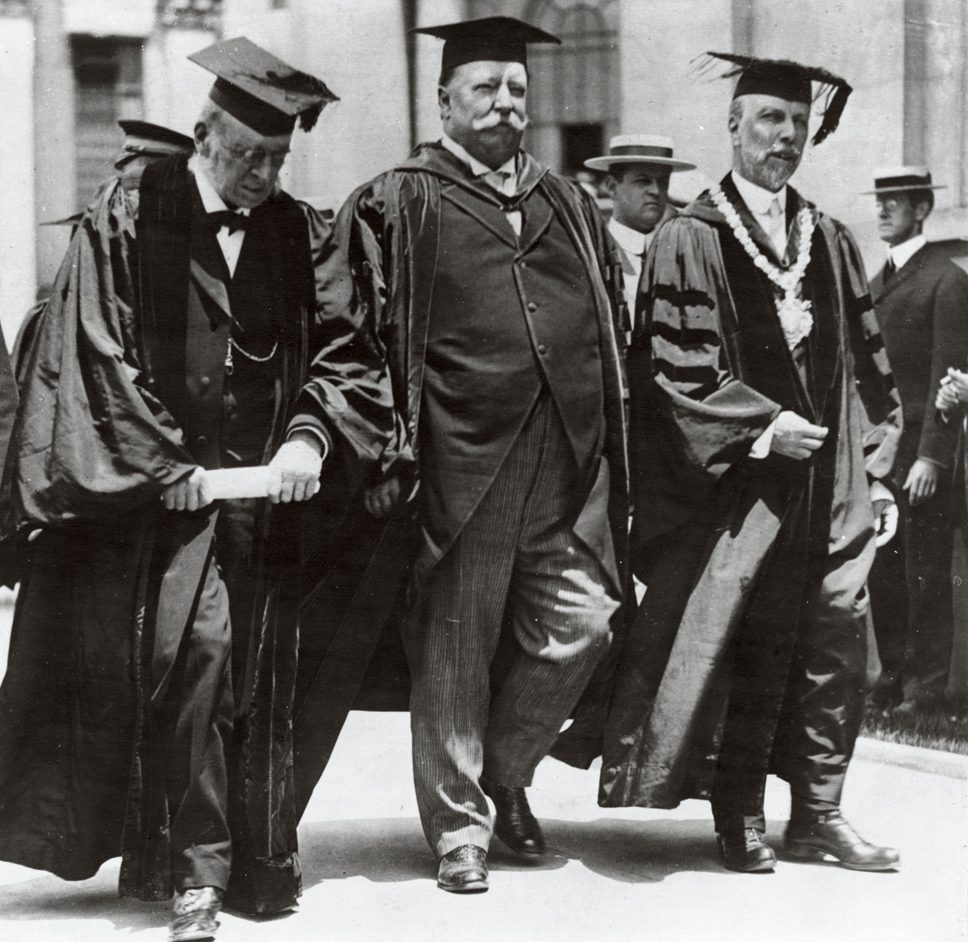The “most interesting address of the year”: News coverage of the Philippine-American war
At the turn of the twentieth century, the News commended several speeches of Yale alumni who were vocal proponents of U.S. imperialism.

Yale Alumni Magazine
On April 30, 1902, the Yale Daily News’ featured article heralded the “most interesting address of the year,” given just the night before. William Howard Taft — Yale College alumnus and future President of the United States — spoke to a crowded College Street Hall. To eager listeners, including prominent faculty and former Yale President Timothy Dwight V, Taft raised the question of whether the Philippines would ever be ready for self-governance.
“No,” wrote the News. “[American] rule, firm and just, is needed to instruct the Philippino before he can become capable of self government.” The article goes on to praise upper class Philippine elites, who were “pleasant to meet.” By contrast, Indigenous Moro people were characterized as “hostile,” with “no idea of government.”
In the aftermath of the Philippine-American War (1899-1902), Yale College invited a number of influential alumni to speak on their experiences with the islands. Many of these people held prominent positions in government and were instrumental in the colonization of the Philippines by the United States. The News’ coverage of these lectures often amounted to mere summarization: relaying the key points of the speaker, and offering not much else. The paper often also subtly signaled agreement with the lecturer. The Oct. 23, 1901 issue of the Yale Daily News heralded a “distinguished graduate of Yale,” Cyrus Northrop, on his “great work of pacifying the Philippine islands.” In many ways, the News reflected the general sentiment and standards of the American press. One study of 122 papers’ coverage of the Philippine-American war classified 68 percent of them as supportive of American intervention in the islands. When broken down geographically, the Northeast percentages closely matched national ones.
By contrast, speakers with anti-imperialist sentiments were not held to the same esteem. The News’ Jan. 17, 1899 issue featured a transcript of a lecture given by professor William Graham Sumner, a prominent member of the Anti-Imperialist League. Sumner delivered his speech before the Phi Beta Kappa Society of Yale; contrary to Northrop’s commendations, the advertisement in the preceding day’s issue only makes note of reserved seating. It is also worth noting the shift in general campus sentiments. The News’ reproduction of Sumner’s speech remains one of the only instances of dedicated anti-imperialist coverage during this time period.
But even more noteworthy is that Yale alumni made up a significant part of the Anti-Imperialist League. Also in their ranks were paper editors, including Samuel Bowles of the Springfield Republican — one of the nation’s foremost anti-imperialist papers. The News’ failure to adequately cover opposition to the national status quo — especially given its composition of intellectuals — is quite significant.
Contemporary writers for the Yale Daily News pride themselves on being an editorially independent organization, and many of their greatest pieces offer criticisms of University administration. In the 1900s, however, a bulk of the News’ articles served to merely promulgate University stances. In the aftermath of the Philippine-American War (1899-1902), the Yale Daily News was not so much “editorially independent” as it was a facsimile of the United States’ efforts to exert its influence on foreign territory, especially in Asia. Through its reproduction of speeches from Yale alumni that sought to claim lands as American soil, coupled with continuing paternalistic rhetoric that nobilized the missionary purposes of Yale alumni, the News acted more as a soapbox for Yale alumni than as a news source.







